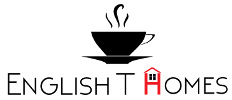A mortgage is a loan, generally used to buy a property. How much you pay depends on how much you borrow (the principal), the loan’s interest rate, and how long you take to pay it back (the amortization period). Do not be afraid to negotiate interest rates and mortgage terms with different lenders. They are offering you a product and talking to more than one lender helps you make an informed decision.
What type of mortgage is best for you?
- Fixed rate mortgages: Your interest rate is locked in for a specified period called a term. Your payments stay the same for the mortgage’s term so you will not pay more if interest rates increase over time.
- Variable rate mortgages: Rate of interest you pay may change if rates go up or down.
- Conventional mortgages: Require a down payment of 20% or more of the property’s value. You are not required to get mortgage default insurance with a conventional mortgage.
- Closed mortgages: The mortgage cannot be paid off early without paying a prepayment charge.
- Open mortgages: A mortgage that can be paid off at any time during the term, without having to pay a charge. The interest rate for an open mortgage may be higher than for a closed mortgage with the same term.
What mortgage features are best for you?
- Portable mortgages: If you sell your existing home, you can transfer your mortgage to your new home while keeping your existing interest rate. You may be able to avoid prepayment charges by porting your mortgage.
- Prepayment privileges: You can make lump-sum prepayments or increase your monthly payments without having to pay a charge. This can help you pay off your mortgage quicker and save on interest charges.
How often can you make your payments?
- By switching from monthly payments to accelerated weekly or biweekly payments, you can pay off your mortgage faster. Explore your options for mortgage payments and see how much interest you could save
by using FCAC’s Mortgage Calculator Tool at: www.itpaystoknow.gc.ca
What type of mortgage charges might you have to pay?
You may have to pay charges if you prepay large portions of your mortgage early or if you break your mortgage due to unforeseen life changes, such as marital breakdown, death of a spouse or relocating for a job.
It is your right to know how lenders calculate prepayment charges. Read your mortgage contract carefully and make sure you understand how charges will be calculated before you sign.
How much do you need for your down payment?
A down payment is the portion of the property’s price not financed by the mortgage. You will need a down payment of at least 5% of the purchase price of the home. For example, to buy a home for $200,000, you will need at least $10,000 as your down payment. If your down payment is less than 20%, you will need mortgage
default insurance.
Information taken from the Homebuyers’ Road Map – www.crea.ca

